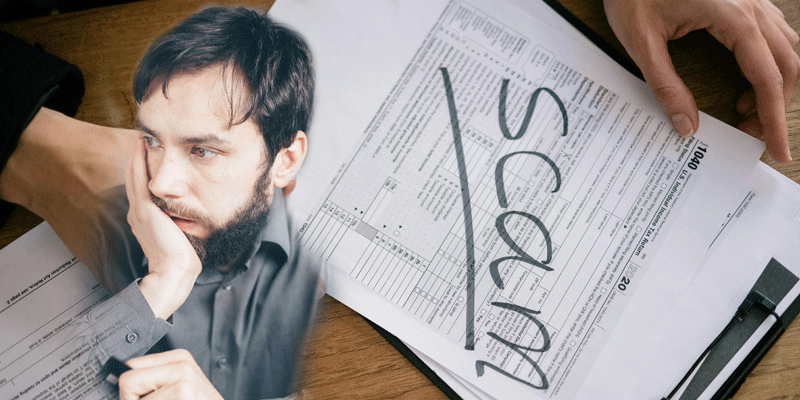The Delayed-Action Sweepstakes Scam: Fake ‘contests’ to steal your money and data
Just when you think fraudsters might be content with a particular (successful) scheme, they conjure up a new twist. This time they’ve one-upped the “Delayed-Action Sweepstakes” scam. The first iteration of this nasty bit of fraud was to call or text a targeted person, informing them that they’ve just won a grand prize. In the next breath they’ll tell their mark that all they need do is to pay the taxes and other miscellaneous fees up front and then their victim can “collect” their new fortune. And, as with scams of that ilk, you will never hear from those fraudsters again and you will never see your money again.
Apparently that old school scam just wasn’t lucrative enough. The new version has scammers, after connecting with you, asking for personal information in order to “validate” your identity so that they can “set up” a payout (that will, ultimately, never happen). They might ask, for example, that you provide your banking information and even your Social Security number, promising to file with the IRS on your behalf and to take care of any other necessary paperwork. They are making these “promises” with their fingers crossed behind their backs, because their intent is to steal your money and your identity.
As for your money — they won’t steal everything all at once since that would definitely get your attention. Instead, they’ll simply write small checks on your account in an attempt to see how closely you monitor your finances. If you don’t immediately notice the discrepancies and report the fraudulent activity, this gives the fraudsters the green light to obtain credit cards and lines of credit in your name so that they can drain your resources for a larger payday in the long run.
How You Can Protect Yourself
Avoid answering calls from unknown numbers, even if a name appears on Caller ID. Let the call go to voicemail—if it sounds like a sweepstakes you don’t recall entering, just delete it. Legitimate sweepstakes usually provide contact information when you enter, so if you think the win might be real, use that info to verify. If you do pick up by mistake, never share personal information with a caller you don’t know. And always review your monthly statements to catch any suspicious activity.
From the Better Business Bureau:
Sweepstakes, lottery and prize scams are among the most serious and pervasive frauds operating today.
While the scams’ roots go as far back in the culture as gambling, the fraud continues to evolve with the times. The scheme currently involves scammers telling people they have won a large amount of money in a lottery or sweepstakes, sometimes by misusing the established name of Publishers Clearing House Sweepstakes. Victims send money, purportedly for taxes or other costs that must be paid before receiving a prize. Unfortunately, the winners don’t receive the promised prizes.
Nearly 500,000 people have reported this fraud to enforcement agencies in the U.S. and Canada over the last three years, and reported losses in 2017 alone totaled $117 million. The actual number of victims and losses is likely much larger.
An old scam is hitting mailboxes in Arizona again. Watch out for sweepstakes lottery scams
PHOENIX — It’s an old scam, but it seems to be making waves again, and it may have targeted your mailbox.
When a Let ABC15 Know viewer reached out asking about a check they had received in the mail, we knew we had to warn others, as it could be a scam targeting the mailboxes of other Arizonans.
Steve S. sent a message saying, “I got this in the mail today and immediately thought of you. Could this be real? What are your thoughts?”
Attached to the email was a picture of a check for nearly $10,000 and a letter from what claimed to be the Publisher’s Clearing House.
Steve, you want to know thoughts, I think it’s likely a scam.
The first red flag: the word “northern” is spelled wrong on the check!




